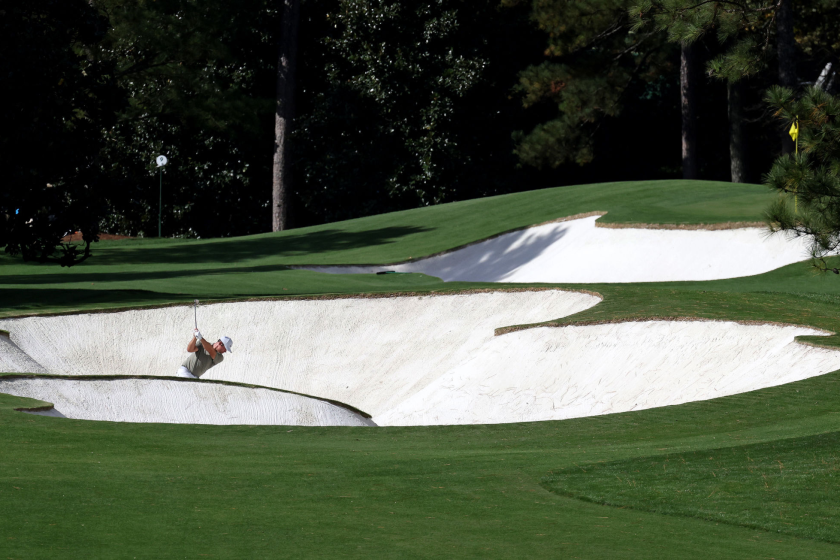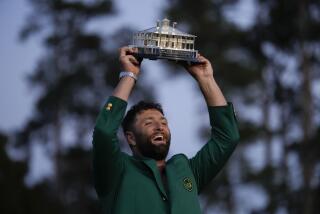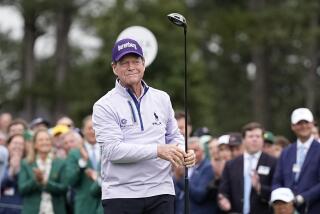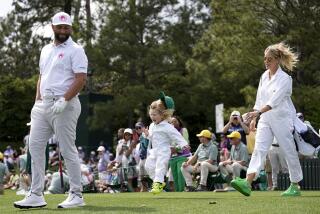It’s so quiet at the Masters, everyone seems to be on the ropes
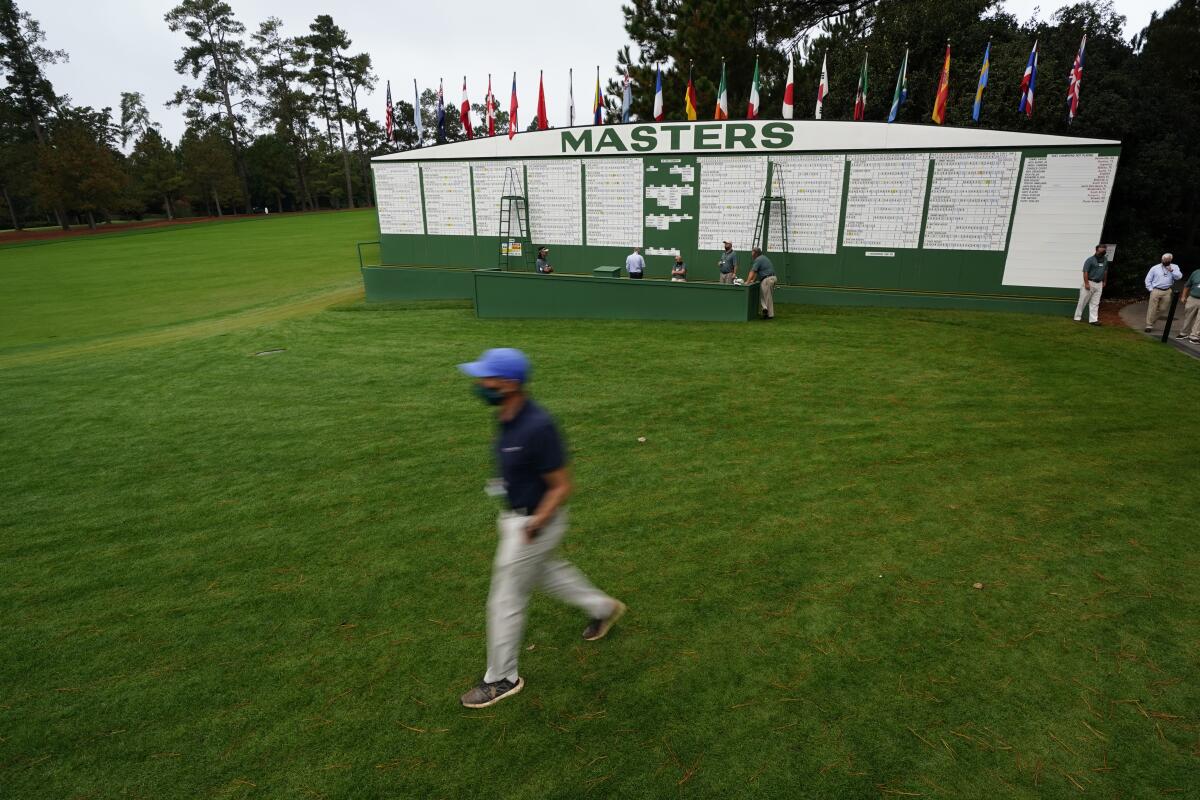
- Share via
AUGUSTA, Ga. — That’s not pine straw people are walking on, but eggshells.
Be still. Be quiet. Be mindful that you’re standing in the right place.
This is the Masters. Unplugged.
Not only does this year’s tournament have no spectators — or “patrons,” as they’re called here — but also there are no ropes. In many respects that makes the experience more exciting — you’re so close to the players you can hear them flipping through pages of their yardage books — yet it also means you’re far more likely to be disoriented and, if not careful, a distraction.
“I think we’ve kind of gotten used to it,” Adam Scott said. “Obviously, the odd person walking at the wrong time, but that always seems to happen occasionally at a golf tournament. It is funny with no ropes as the occasional wanderer just checking the fairways out.”
The majority of the people watching the action live are either media members, Augusta National members and their guests, or tournament volunteers. Thousands have been winnowed to dozens.
The Crow’s Nest is the cozy attic of the Augusta National clubhouse. The 30-by-40-foot room provides living space for up to five amateurs playing in the Masters.
In a sense, working without a rope means working without a net. Little missteps and noises stand out.
There was a woman in the opening round trying to get from one side of the No. 2 fairway to the other. She was crossing at the prescribed spot, but chose to do so with Tiger Woods’ group bearing down on her, having just teed off. There was an awkward dance to avoid a human traffic jam before British Open winner Shane Lowry politely motioned for her to go through before he passed.
In a setting so quiet you can hear the drop of a pinecone two fairways away, not every golfer is easily distracted.
“My vision is only inside the ropes,” Phil Mickelson said, then noting wryly: “My ball is outside the ropes.”
In normal times, there are ropes lining the fairways and greens at every PGA Tour event, including the Masters. Certain members of the media and others working the tournament have inside-the-ropes access everywhere but at the Masters, where that area is limited to players, caddies, and perhaps camera operators for the broadcasting network.
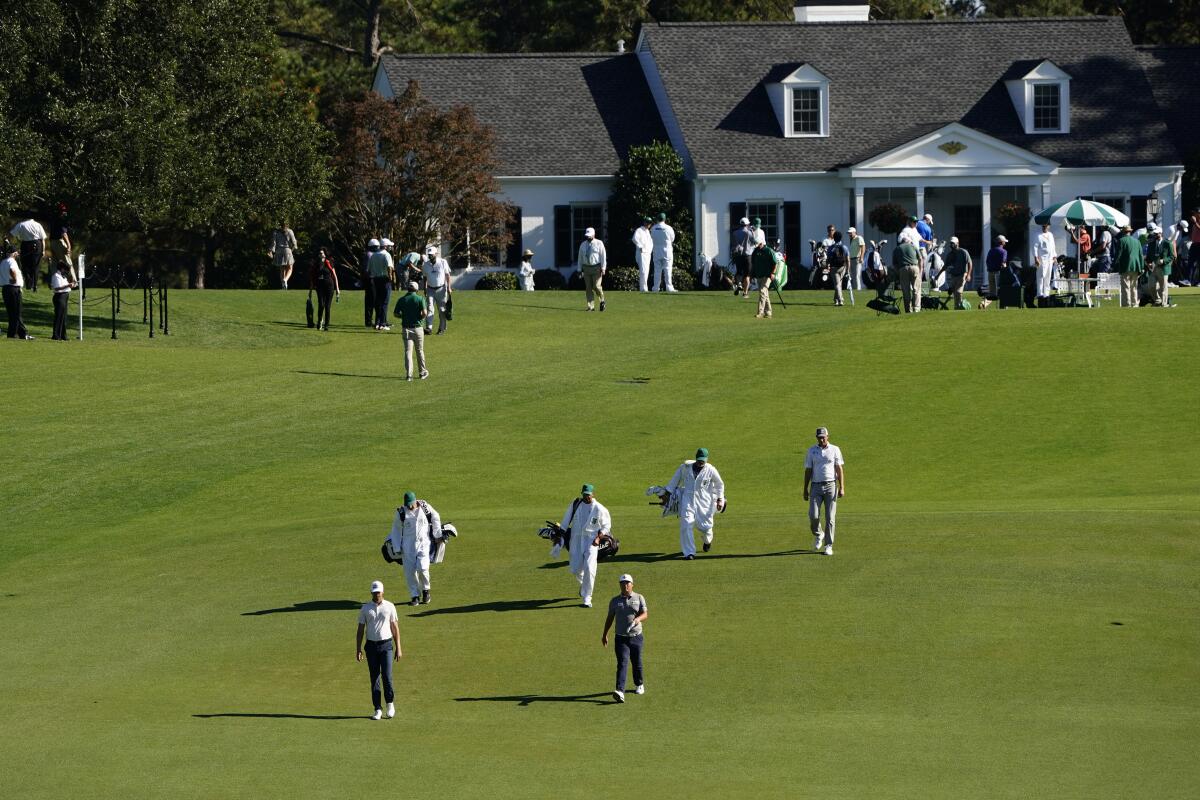
“It makes some shots less intimidating.”
— Rory McIlroy, on envisioning shots without a gallery
So no ropes at Augusta is doubly surreal.
Most of these competitors haven’t played in a tournament without ropes since high school or college, and for the small clusters of people following them — reporters, coaches, spouses — navigating certain parts of the storied course can be like driving on a two-lane country road with no lines on it. You know where you’re supposed to be, but you’re always mindful of erring on the side of the dirt shoulder.
Of course, there are no dirt shoulders at Augusta. The grounds are meticulously manicured, like Disneyland in Switzerland, with a uniform layer of pine straw covering everything that isn’t grass or sand. There are subtle, dark green dashes on the ground, somewhere but not everywhere, indicating where a rope would be. But if you aren’t mindful, you can find yourself on the wrong side of those, peeking around a tree to watch a shot.
The lack of foot traffic makes the course more pristine. There’s very little of the green sand, used in the wooded areas during the spring when there’s a wet patch on the ground. So players who hit wayward shots don’t need to adjust to that. And without patrons ringing them, some of the greens appear easier to hit.
“It makes some shots less intimidating…” Rory McIlroy said. “Like the second shot into No. 2, there’s all these people around the green, you’re trying to hit it into this little area, and you feel like you’ve just got a bit more of an expansive area to hit into.”
It looks like sand from a tropical beach, but the material gleaming from the bunkers at Augusta National actually comes from the mountains of North Carolina.
The absence of patrons probably cost Bryson DeChambeau in a significant way Friday. On No. 3, he took an aggressive angle on his drive and apparently landed in the rain-dampened rough, which appears longer now than in years past. The ball must have plugged because at one point at least 15 people were searching for it to no avail. The maximum three minutes passed, and DeChambeau was forced to return to the tee with a two-shot penalty for a lost ball. He finished the hole with a triple-bogey seven.
Had there been a gallery, someone almost certainly would have seen the original ball land.
Surely the photographers reap the biggest benefits of a Masters without ropes. In a typical year, to get the photos they need, they have to navigate their way through throngs of patrons to get their lenses into position. Sometimes that means lifting their cameras high overhead, or kneeling for a low angle through a forest of legs.
Now, everything is wide open.
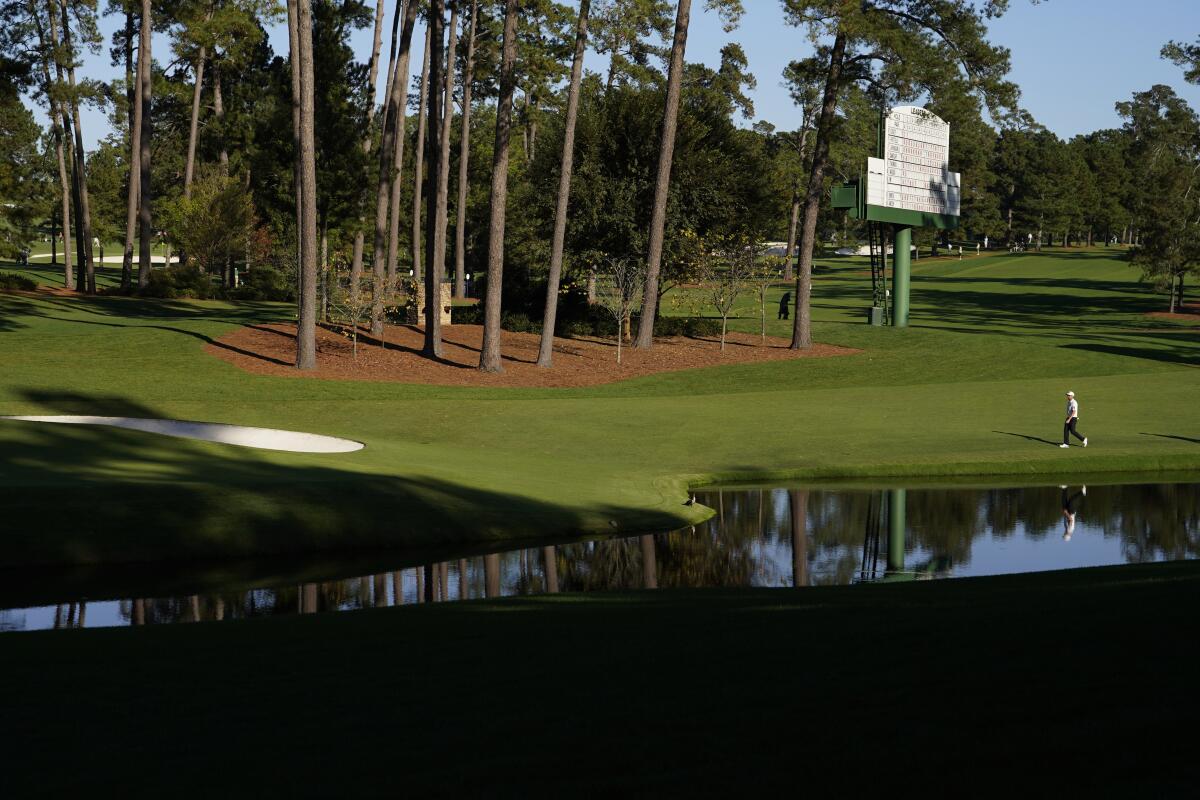
That also comes with a big downside. A thousand people in the background can make a photo. A couple of stray wanderers can ruin one.
“This is the first sports event that I covered all year that I really miss the patrons,” said Atlanta Journal-Constitution photographer Curtis Compton, covering his 35th Masters. “Of all the sporting events you cover, the patrons really make the images.”
Compton has some concerns about the impending celebration shot, a must-have moment for photographers.
“Obviously on Sunday, you’re going to have a guy winning the Masters,” he said. “If it’s Dustin Johnson, you’ll get a little wave. Maybe a tip of the cap.
“Without the fans celebrating in the background, it doesn’t have that Masters feel.”
More to Read
Go beyond the scoreboard
Get the latest on L.A.'s teams in the daily Sports Report newsletter.
You may occasionally receive promotional content from the Los Angeles Times.

